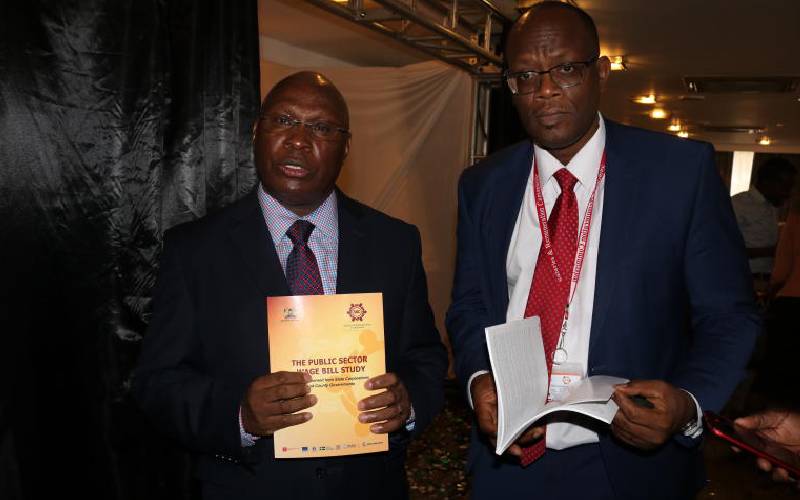×
The Standard e-Paper
Stay Informed, Even Offline

Stephen Kirogo, the chairman of the Public Service Commission and Commissioner John Monyoncho launch the Public Sector Wage Bill Study report done by the SRC. [Standard]
Nearly 30,000 jobs will soon be up for grabs in the Civil Service, but there is a catch: All new employees will be on contract terms.